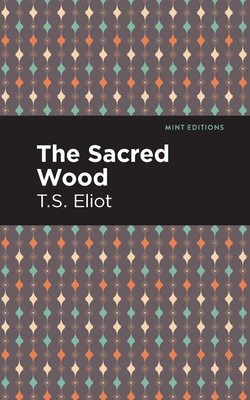The Sacred Wood

The Sacred Wood
The Sacred Wood: Essays on Poetry and Criticism (1920) is a collection of essays by T.S. Eliot. Although Eliot is primarily recognized as one of the twentieth century's leading English poets, he was also a prolific and highly influential literary critic. This collection, which includes essays on Algernon Charles Swinburne, Hamlet, William Blake, and Dante, is central to Eliot's legacy and vision of art. In "Tradition and the Individual Talent," Eliot sheds light on his vision of the role of poet with respect to tradition. Well-versed in classical poetry, Eliot possessed a dynamic vision of poetic tradition that viewed the working poet as an extension of those who came before. The role of the poet, then, is to innovat
PRP: 43.34 Lei
Acesta este Prețul Recomandat de Producător. Prețul de vânzare al produsului este afișat mai jos.
39.01Lei
39.01Lei
43.34 LeiIndisponibil
Descrierea produsului
The Sacred Wood: Essays on Poetry and Criticism (1920) is a collection of essays by T.S. Eliot. Although Eliot is primarily recognized as one of the twentieth century's leading English poets, he was also a prolific and highly influential literary critic. This collection, which includes essays on Algernon Charles Swinburne, Hamlet, William Blake, and Dante, is central to Eliot's legacy and vision of art. In "Tradition and the Individual Talent," Eliot sheds light on his vision of the role of poet with respect to tradition. Well-versed in classical poetry, Eliot possessed a dynamic vision of poetic tradition that viewed the working poet as an extension of those who came before. The role of the poet, then, is to innovat
Detaliile produsului









